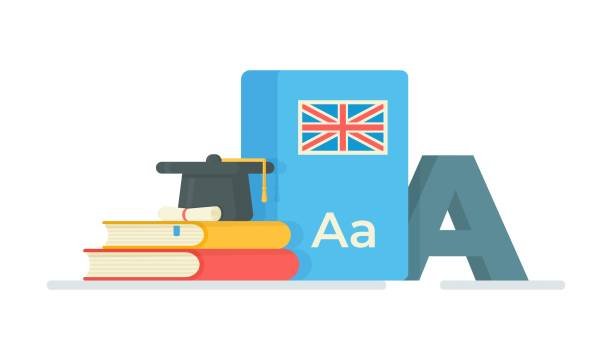Introduction: What Are A-Levels?
If you’re a student in the UK planning your path to situs slot gacor maxwin
MVP189
university or professional life, you’ve likely come across the term A-levels. But what are A-levels, and why do they matter?
A-levels, or Advanced Level qualifications, are subject-based qualifications offered in England, Wales, and Northern Ireland. They are typically studied over two years and are essential for pursuing higher education or entering specific career fields.
Whether you’re continuing education after GCSEs or returning as a mature student, studying A-levels at college offers a flexible, focused, and supportive environment. In this blog, we’ll explore the essentials—from subject selection to grading—and answer the most searched questions about A-levels in the UK.
What Are A-Levels in the UK?
A-levels are qualifications typically taken by students aged 16 to 18, although mature learners can also pursue them. They serve as a bridge between secondary school and higher education or employment.
Key Features:
- Usually studied over two academic years.
- Offered by colleges, sixth forms, and independent institutions.
- Recognised for university admissions both in the UK and abroad.
- Students usually choose three or four subjects, though some opt for more.
Why Choose a College for A-Levels?
Many students choose to study A-levels at a college rather than a school-based sixth form. Here’s why college can be a good choice:
1. Greater Independence
College environments mimic university-style learning, promoting time management, independence, and responsibility.
2. Flexible Course Options
Colleges typically offer a wider selection of A-level courses, including niche subjects not always available in schools.
3. Career Guidance and Support
Colleges often have dedicated career advisors to help with university applications, UCAS, apprenticeships, or vocational pathways.
What Is the Structure of A-Level Courses?
A-levels are split into two parts:
- AS Level (Year 12): The first year of study. Some students take AS qualifications independently.
- A2 Level (Year 13): The second year, building on AS-level knowledge.
Together, these form the full A-level qualification.
Assessment and Grading:
- Most subjects are assessed through examinations, supplemented by coursework.
- Graded from A (highest)* to E (minimum pass).
- A U grade indicates a fail (ungraded).
Popular A-Level Subjects Offered at Colleges
Core Academic Subjects:
- Mathematics
- Physics
- Chemistry
- Biology
- English Literature
- History
- Geography
Social Sciences and Humanities:
- Psychology
- Sociology
- Economics
- Politics
Creative & Vocational Subjects:
- Art and Design
- Drama
- Film Studies
- Media Studies
Language and Culture:
- French
- Spanish
- Mandarin
- Classical Civilisation
Some colleges also offer courses for A-levels tailored for specific careers, such as law, medicine, engineering, or media production.
How Many A-Levels Can You Take?
The typical number of A-levels taken is three, but some students opt for four if they are aiming for top-tier universities or have a strong academic ability.
While taking more A-levels may seem appealing, quality over quantity is crucial. Universities often make offers based on three main A-level grades, so it’s better to excel in three subjects than underperform in four or five.
Entry Requirements for A-Level Courses
Each college sets its entry criteria, but most require a minimum number of GCSE passes (usually grade 4/C or above).
Some competitive subjects, such as Maths, Physics, or English Literature, may require specific GCSE grades (grade 6 or above) in those subjects.
Colleges may also conduct interviews, placement tests, or ask for a personal statement.
Benefits of Studying A-Levels
✔ University Pathway
A-levels are the most recognised qualification for entry into UK universities and many global institutions.
✔ Career Flexibility
They don’t lock you into one field too early, allowing you to explore diverse career routes.
✔ Specialization
You get to choose subjects you’re passionate about, helping you develop expertise before higher education.
✔ Globally Recognised
Employers and academic institutions worldwide respect British A-levels.
Tips for Succeeding at A-Level College
- Plan: Use planners and calendars to manage coursework and revision schedules.
- Stay Organised: Keep your notes tidy and digital resources well categorised.
- Ask Questions: Engage with tutors and peers to enhance understanding.
- Practice Past Papers: Helps understand exam structure and timing.
- Use College Resources: Make the most of libraries, labs, and workshops.
- Balance Work and Life: A-levels are demanding; take breaks, eat well, and get enough sleep.
Challenges Students May Face
• Increased Workload
The jump from GCSE to A-level can feel overwhelming initially due to the depth of content.
• Independent Learning
Unlike GCSEs, A-levels require self-driven study and time management.
• Exam Pressure
The focus on final exams for most subjects can create stress without proper revision techniques.
But with discipline, guidance, and college support, students can manage these challenges effectively.
What Comes After A-Levels?
1. University
With strong A-level results, you can apply to top universities through the UCAS system. Specific programs, like medicine or engineering, may have specific subject requirements.
2. Apprenticeships
Higher and Degree Apprenticeships allow you to earn while you learn—ideal if you prefer a hands-on approach.
3. Foundation or Access Courses
If your A-levels don’t meet university criteria, foundation years can bridge the gap.
4. Employment
Some industries welcome A-level holders, especially those who have combined their qualifications with work experience or vocational skills.
Frequently Asked Questions (FAQs)
What is the difference between A-levels and GCSEs?
GCSEs are taken at age 16, covering more subjects. A-levels are more specialised and advanced, typically taken at ages 16–18.
Are A-levels mandatory for university?
For most traditional university degrees, the answer is yes. However, vocational qualifications or foundation degrees may offer alternatives.
Can international students take A-levels?
Yes, many international schools and colleges offer A-level programs to students from outside the UK.
Conclusion: Your Pathway to Higher Education Starts Here
Choosing to study A-levels at college is a significant step toward shaping your future. Whether your goals involve university, a professional career, or exploring new academic interests, A-levels provide the foundation for success.
Colleges provide a unique environment that offers support, flexibility, and independence, helping students grow both personally and academically. So, whether you’re wondering “what are A-levels in the UK” or preparing to select your subjects, take this journey seriously—it could define your next big chapter.



